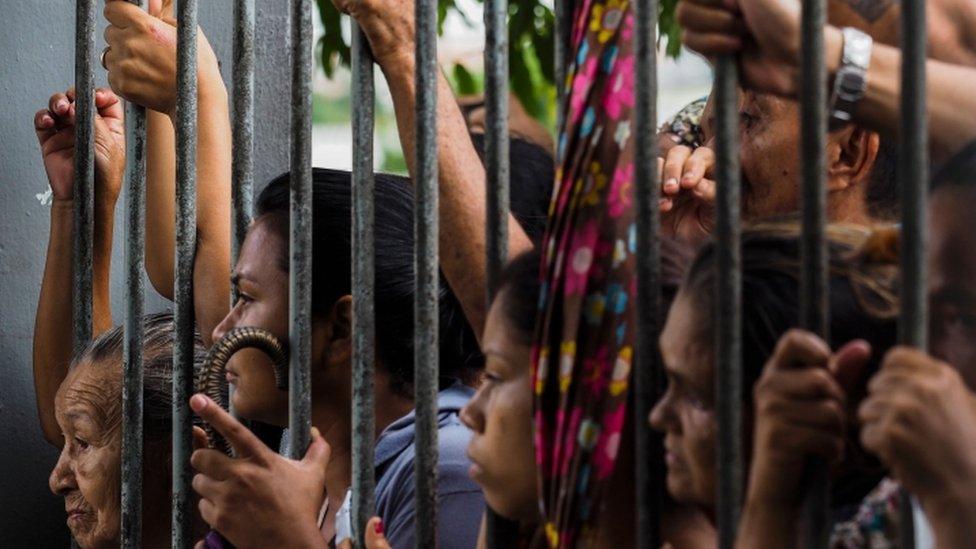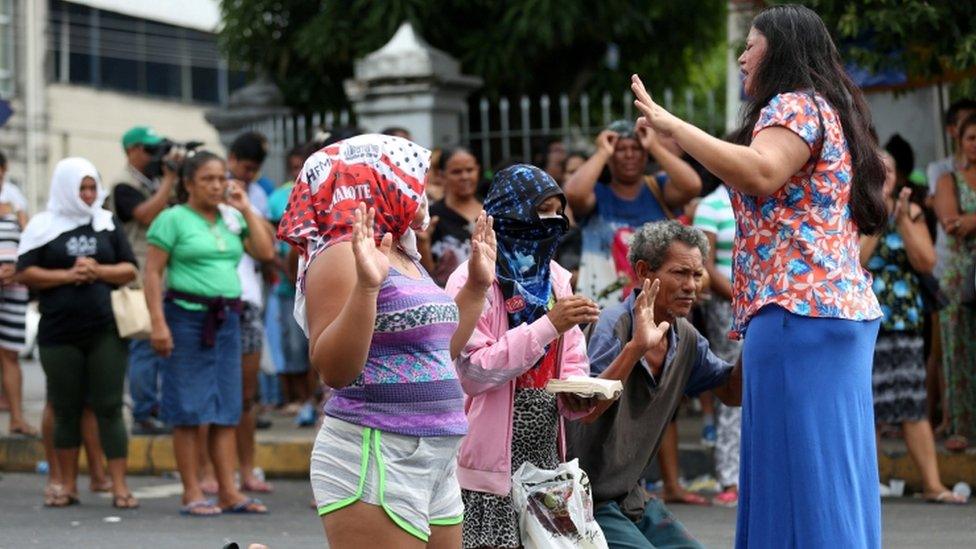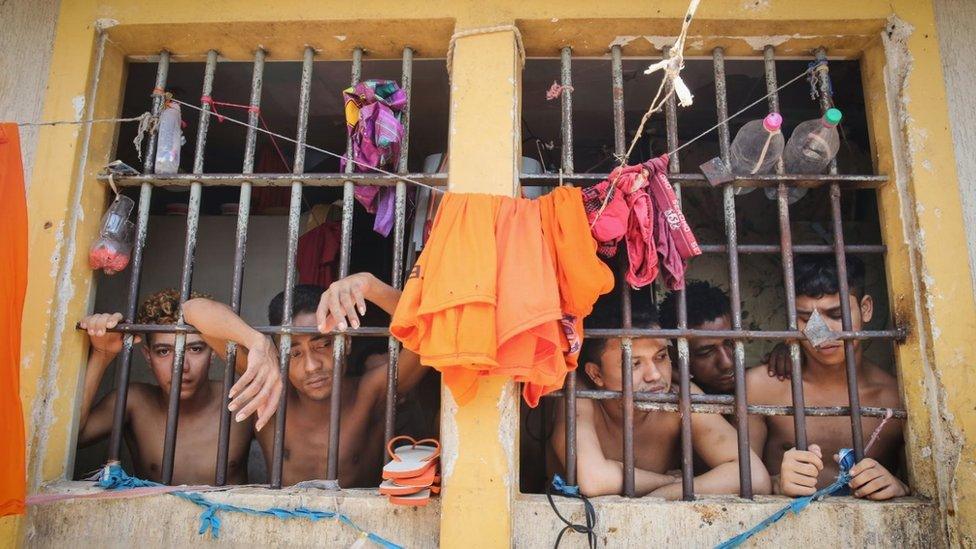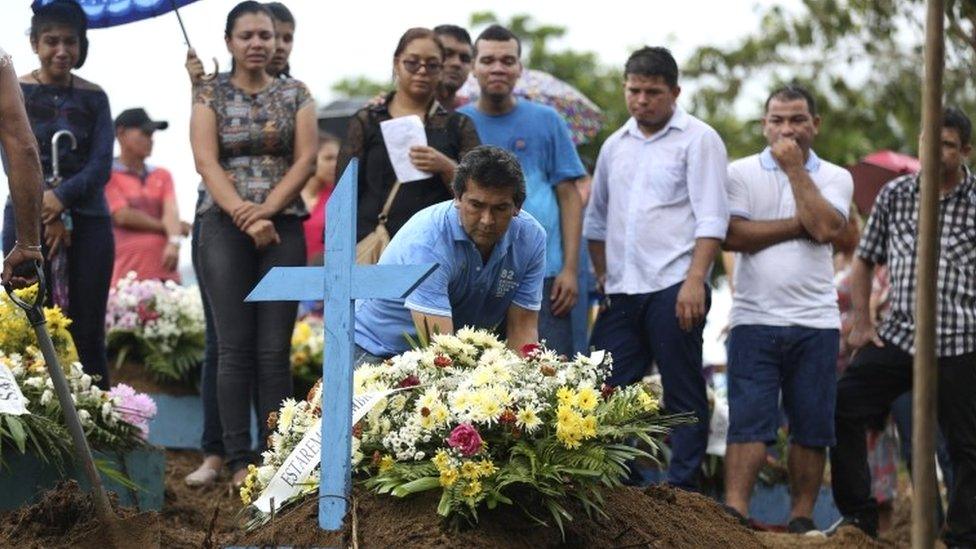Brazil prison system sees fresh round of violence
- Published

Relatives gathered outside the Vidal Pessoa jail in central Manaus to hear what had happened to their relatives
Four people have been killed in a prison in the Brazilian city of Manaus in another round of clashes between rival gangs.
Three of the victims at the Vidal Pessoa jail in the city centre were decapitated.
The prison was reopened to house inmates from a jail where 56 prisoners died in a riot last week.
Officials say the prison violence in the state is part of a war between rival gangs over the drug trade.
It has spread to other state prisons; in neighbouring Roraima state, 33 people were killed in clashes on Friday.
Why are Brazil's jails so violent?
The escalating feud is between Brazil's biggest drug gangs who ended two decades of an uneasy working relationship six months ago.
The largest and most powerful gang, the Sao Paulo-based First Capital Command (PCC) split with the Rio de Janeiro-based Red Command when the PCC took over drug trading routes in the south-east of the country.
Members of the PCC were targeted last Sunday in the first violent outbreak at a jail on the outskirts of Manaus.
The death toll of 56 made it the most violent jail riot in Brazil for decades.

Some relatives of inmates prayed in front of the jail as they waited to find out what had happened
Five days later, PCC members killed 33 people at a state prison Roraima state.
Mobile phone video shared on social media showed inmates hacking at bodies in acts of revenge.
Experts say the PCC is moving to infiltrate areas in the Red Command's home base of Rio and infiltrating Brazil's Amazon region to control cocaine-smuggling river routes.
Since it split from the PCC, the Red Command has allied itself with the smaller northern regional gang, the North Family.
The government has till now used a policy of transferring gang leaders and members to jails distant from their operating territories.
Human rights agencies have argued that the measures have had little effect and have called for a programme of capital spending to relieve chronic overcrowding and appalling conditions in the country's jails.
At the request of several of the northern states governors, the Brazilian government has promised a new prison building programme to deal with the overcrowding and extra security personnel to try to quell the mounting violence.
- Published9 January 2017

- Published5 January 2017
